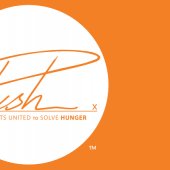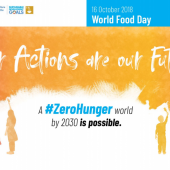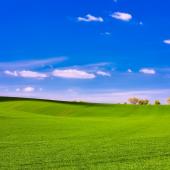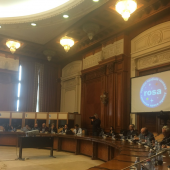Welcome to the final week of the GODAN Summit 2016 Blog Series. Each week, we will post a blog written by a participant of our Summit held in New York City on September 15-16. This week's blog is written by Sreekanth Rameshaiah of Mahiti. Mahiti encourages and supports the social development sector to transition from in-house computing systems to cloud-based services. Sreekanth, an IT engineer from Bangalore University, began his career as a tech consultant to a major rural development agency in Karnataka. He then co-founded Mahiti in 2000. Sree is an Open Source advocate with special interest in building imaginative technology solutions to support social change.
Request: Dear Leaders of governments of developing economies, please make Agricultural and Nutritional data Public
Food security is a global challenge. Globally about 800 million people are under nourished. On an average in developing countries about one in eight people, or 13.5 percent of the overall population, remain chronically undernourished. As the most populous region in the world, Asia is home to two out of three of the world’s undernourished people.
Majority of developing country have agriculture as one of their main contributors of GDP. The agricultural practices are still based on historical traditional practices. Traditional agricultural practices may not produce necessary quantum of output required for bridging the gap in supply and consumption. Traditional methods waste lot of water and other resources. It’s critical to is to ensure evolution of the food production methodologies and techniques in these countries through adoption of technology. Effective technology interventions depend on availability of quality data. The relevance and accuracy of data will increase when all the stakeholders both share and co-create open data.
Currently data is being produced by four diverse groups of users. These include Governments, Research institutions, Agricultural Businesses and farmers. Though they are the fulcrum of the agricultural production farmers hardly get access to Data produces by the remaining stakeholders. This not only puts them in disadvantage, but also limits them from practicing scientific approach to agriculture.
In the recently concluded GODAN Summit 2016 these issues came to the forefront. “Precision Agriculture:How Could Open Data Revolutionize Farm Productivity?” session was full of eminent panelists and the session panned out (touching upon evolving Information Technology that has potential to benefit both smallholder- to larger-scale farmers) to be extremely informative and full of usable insights.
The session Connecting the Continent (Open Data for Africa) gave an encouraging insight into phenomenal work being done by various stakeholders in Africa to raise awareness about the need for Open Data and how countries like Kenya have become the thought leaders by leading the way.
US state Census Bureau showcased their open data. They also exhibited how anyone could query the data using visualising tools provided on their web portal. UK’s Department for Environment, Food and Rural Affairs demonstrated how they were walking the talk by releasing more than 11,000 datasets in last two years. That was very inspiring and hopefully developing country governments will do the same.
I was one of the frequent visitors to the GODAN Open Data Hackathon. It was inspiring to see teams burning their midnight oil to get a working model of their project for showcasing to the judges. Despite working for more than 2 days teams presented their projects with full energy and passion.
Mr. Amir Dossal who anchored the closing plenary, true to his credentials was full of humour, wit and ensured that the audience got the message.
We all took pride in signing the petition asking the “Leaders of the world” to pledge their commitment to contribute open data to create a equitable world.
GODAN Summit provided a great opportunity for each one of us to network and grow. Special thanks to Andre Laperriere and untiring Michael Brobbey for making this happen.






